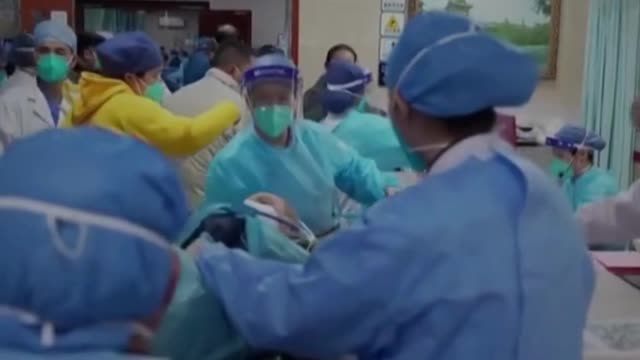Premium Only Content

A third of the world will into recession in 2023, Warns IMF. War & Europe's largest refugee wave.
A third of the world will go into recession in 2023, says the IMF.
2023 will be ‘a difficult year for the world', warns IMF head.
Here's how Europe can support Ukrainian refugees, according to the IMF
The war in Ukraine has created Europe's largest refugee wave since World War II as almost 8 million people have been forced to flee the country, the IMF reports.
They can boost economic growth and tax revenue in European countries while helping to ease labour market tightness, it says.
However, host nations need to do more to support refugees, from providing affordable care services to increasing local government funding.
Almost 8 million refugees have fled Ukraine since Russia’s invasion in February, Europe’s largest refugee wave since World War II, with the majority of those now in the European Union. These figures will increase depending on the war’s duration and severity.
Creating conditions in which refugees can return home once war ends and reconstruction starts is the overarching objective. However, refugees may stay in their adopted homelands for some time. With the right policies in place, this could be positive for host countries, not least because of labor shortages and aging populations.
Many of those who have fled have a different demographic profile than those in past refugee waves, with surveys in Germany, Moldova and Poland showing that most arrivals are children and women under 40.
Europe reacted with swift and decisive support, and 4.8 million people from Ukraine are registered for temporary protection in the EU or in similar national programs. The EU has removed many barriers refugees typically face by offering residency rights, work permits, and access to health care, schools, housing and banking services.
Supporting refugees comes with some short-term fiscal costs. Across the EU, these could reach 30 billion euros to 37 billion euros in the first year, or about 0.2 percent of gross domestic product, as we noted in our latest Regional Economic Outlook, published in October. Countries with the largest shares of refugees, including the Czech Republic, Estonia, Moldova, and Poland, could incur fiscal costs this year equal to about 1 percent of GDP. The larger share of women and children will result in more spending on childcare, education, and health care services.
Over the medium term, however, refugees could boost economic growth and tax revenue while helping ease current labor market tightness in some parts of Europe. We estimate that Ukrainian refugees could raise the size of Europe’s labor force by some 0.6 percent by the end of 2022, and by 2.7 percent in the countries with the largest numbers of arrivals, where Ukrainian refugees will ease labor shortages.
#recession #imf #war #ukrine #russia #europe #refugee #funding #tax
-
 10:48
10:48
Nikko Ortiz
15 hours agoDont Watch These TikToks
31.8K8 -
 10:17
10:17
MattMorseTV
14 hours ago $10.45 earnedTrump's DOJ just DROPPED a NUKE.
59.1K68 -
 2:09:32
2:09:32
Side Scrollers Podcast
17 hours agoStreamer DIES Live On Air + Your Food is Poison + Xbox Announces $900 Handheld | Side Scrollers Live
12.1K8 -
 15:32
15:32
GritsGG
13 hours agoFull Auto ABR Sniper Support! Most Winning Quad Win Streaking!
4.01K2 -
 7:42
7:42
The Pascal Show
12 hours ago $0.41 earnedBREAKING! Police Provide UPDATE In Emmanuel Haro's Case! Is Jake's Lawyer Lying To Us?!
5.07K -
 2:29:46
2:29:46
FreshandFit
6 hours agoAfter Hours w/ Girls
102K63 -
 5:28
5:28
Zach Humphries
12 hours ago $0.90 earnedNEAR PROTCOL AND STELLAR TEAM UP!
10.2K2 -
 1:09:57
1:09:57
Brandon Gentile
1 day ago10,000 Hour BITCOIN Expert Reveals Why $13.5M Is Just The Start
15.9K1 -
 2:03:55
2:03:55
Badlands Media
6 hours agoDevolution Power Hour Ep. 382: DOJ Coverups, Clapper’s Team Sport & Trump’s Countermoves
127K19 -
 2:06:30
2:06:30
Inverted World Live
9 hours agoDon't Approach the Zombie Rabbits | Ep. 95
50.4K24